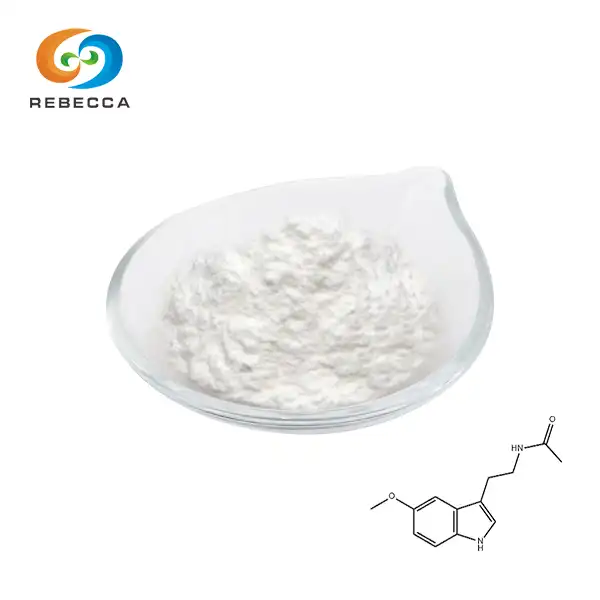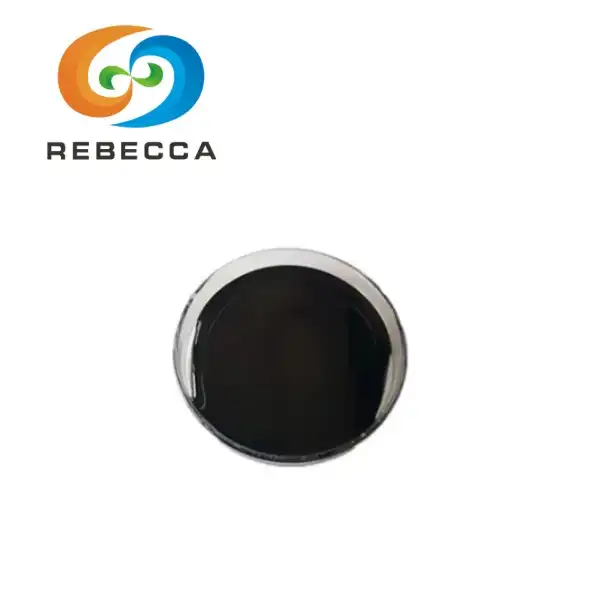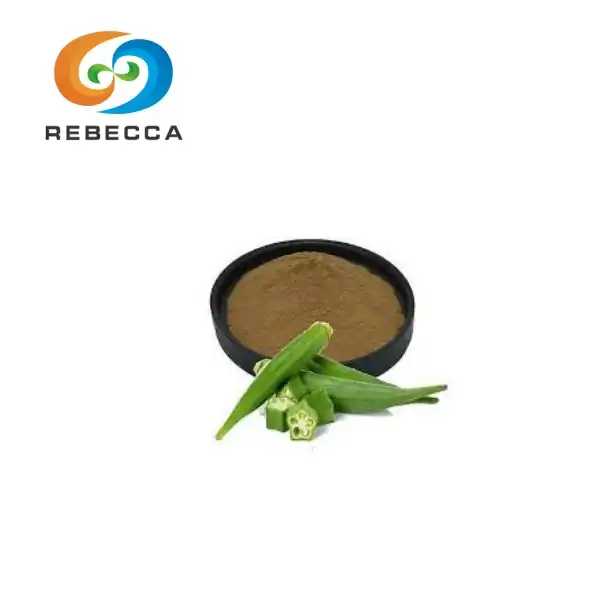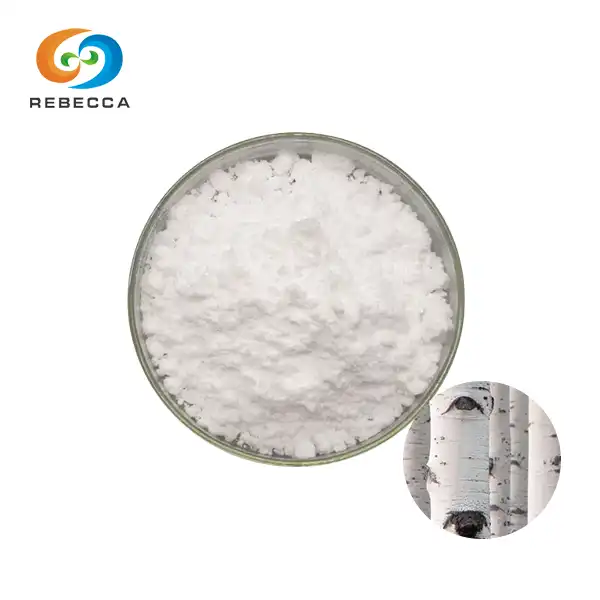How does fucoxanthin impact metabolic health?
Fucoxanthin, a powerful carotenoid found in brown seaweed, has garnered significant attention in the health and wellness community for its potential impact on metabolic health. This article explores the fascinating relationship between fucoxanthin powder and various aspects of metabolism, shedding light on its benefits and mechanisms of action.
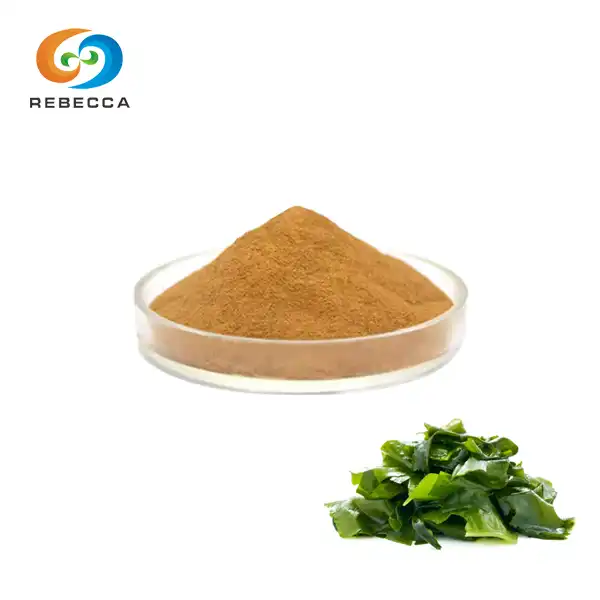
English name: Fucoxanthin
Molecular formula: C42H58O6
CAS number: 3351-86-8
Specification]: 5% 10% 20% 30% 40% 50%Appearance: Usually crystalline powder or oily substance, light yellow to brown in color
Solubility: Insoluble in water, easily soluble in organic solvents such as ethanol
Physiological functions: Has multiple pharmacological effects such as anti-tumor, anti-inflammatory, antioxidant, weight loss, and nerve cell protection
Application: Widely used in the market of medicines, skin care and beauty products, and health products
Fucoxanthin Powder Benefits for Metabolic Health
Enhancing Fat Oxidation
Fucoxanthin powder exhibits remarkable potential in boosting fat oxidation, a crucial process in metabolic health. Research suggests that fucoxanthin may activate certain proteins involved in fat metabolism, leading to increased breakdown of stored fat. This property of fucoxanthin powder makes it an intriguing subject for those interested in weight management and overall metabolic wellness.

Regulating Blood Glucose Levels
Another significant benefit of fucoxanthin powder lies in its ability to help regulate blood glucose levels. Studies indicate that fucoxanthin may improve insulin sensitivity, allowing cells to utilize glucose more effectively. This regulation of blood sugar is essential for maintaining metabolic balance and preventing conditions such as type 2 diabetes.
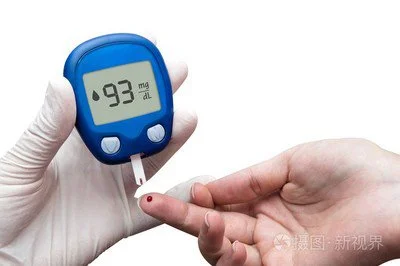
Combating Oxidative Stress
Fucoxanthin powder boasts potent antioxidant properties, which play a vital role in metabolic health. By neutralizing harmful free radicals, fucoxanthin helps protect cells from oxidative damage. This protection extends to metabolic processes, potentially safeguarding against metabolic disorders and promoting overall cellular health.

How Fucoxanthin Supports Healthy Metabolism?
Activating Thermogenesis
One of the key mechanisms through which fucoxanthin powder supports metabolism is by activating thermogenesis. This process involves the production of heat in the body, which can lead to increased energy expenditure. By promoting thermogenesis, particularly in white adipose tissue, fucoxanthin may contribute to a more efficient metabolism and improved weight management.
Modulating Metabolic Enzymes
Fucoxanthin powder has been observed to modulate various metabolic enzymes. It may influence the activity of enzymes involved in lipid metabolism, such as acetyl-CoA carboxylase and fatty acid synthase. By regulating these enzymes, fucoxanthin potentially alters the way the body processes and stores fats, contributing to improved metabolic function.
Influencing Gene Expression
Research suggests that fucoxanthin powder may have a profound impact on gene expression related to metabolism. It has been shown to influence the expression of genes involved in fat storage, energy expenditure, and glucose metabolism. This ability to modulate gene expression underscores fucoxanthin's potential as a powerful metabolic regulator.

Using Fucoxanthin Powder for Weight and Metabolism
Optimal Dosage Considerations
When incorporating fucoxanthin powder into a metabolic health regimen, determining the optimal dosage is crucial. While research is ongoing, studies have explored dosages ranging from 1 to 16 mg per day. It's important to note that the bioavailability of fucoxanthin can vary, and factors such as individual metabolism and the formulation of the fucoxanthin powder can influence its effectiveness.
Combining with a Balanced Diet
To maximize the metabolic benefits of fucoxanthin powder, it should be combined with a balanced, nutrient-rich diet. A diet high in fiber, lean proteins, and healthy fats can complement fucoxanthin's metabolic effects. Additionally, some research suggests that the presence of dietary fat may enhance the absorption of fucoxanthin, potentially increasing its bioavailability.
Synergistic Effects with Exercise
Incorporating regular physical activity alongside fucoxanthin powder supplementation may yield synergistic effects on metabolic health. Exercise itself promotes metabolic benefits, and when combined with fucoxanthin's potential to enhance fat oxidation and energy expenditure, the overall impact on metabolism could be significant. This combination may offer a comprehensive approach to supporting metabolic wellness.
Potential Interactions and Precautions
While fucoxanthin powder shows promise for metabolic health, it's essential to consider potential interactions and take necessary precautions. Fucoxanthin may interact with certain medications, particularly those metabolized by the CYP3A4 enzyme. Additionally, individuals with seafood allergies should exercise caution, as fucoxanthin is derived from seaweed. Consulting with a healthcare professional before starting any new supplement regimen is always advisable.
Long-term Considerations
The long-term effects of fucoxanthin powder on metabolic health are still being studied. While short-term studies have shown promising results, more research is needed to fully understand the implications of prolonged fucoxanthin supplementation. Ongoing studies are exploring the potential for fucoxanthin to support sustained metabolic improvements and its role in preventing metabolic disorders.
Choosing Quality Fucoxanthin Powder
The quality of fucoxanthin powder can significantly impact its metabolic benefits. When selecting a fucoxanthin supplement, it's crucial to choose products from reputable manufacturers that adhere to strict quality control standards. Look for fucoxanthin powder that has been tested for purity and potency, and consider factors such as extraction methods and standardization of active compounds.
Conclusion
Fucoxanthin powder demonstrates remarkable potential in supporting metabolic health through various mechanisms. From enhancing fat oxidation and regulating blood glucose to activating thermogenesis and modulating gene expression, fucoxanthin offers a multifaceted approach to metabolic wellness. While research is ongoing, the current evidence suggests that fucoxanthin, when used as part of a balanced lifestyle, may contribute significantly to improved metabolic function and overall health.
At Shaanxi Rebecca Biotechnology Co., Ltd., we are at the forefront of producing high-quality fucoxanthin powder. Our state-of-the-art extraction processes and rigorous quality control ensure that our fucoxanthin powder retains its potent metabolic benefits. As a leading fucoxanthin powder factory, we are committed to advancing the field of natural health supplements. For those seeking to explore the metabolic advantages of fucoxanthin, we invite you to experience the quality and efficacy of our products. To learn more about our fucoxanthin powder and other natural herbal extracts, please contact us at information@sxrebecca.com.
FAQ
What is the recommended dosage of fucoxanthin powder?
While dosages can vary, studies have explored ranges from 1 to 16 mg daily. It's best to consult with a healthcare professional for personalized advice.
Can fucoxanthin powder help with weight loss?
Research suggests fucoxanthin may support weight management by enhancing fat oxidation and metabolism, but it should be used alongside a healthy diet and exercise.
Are there any side effects of taking fucoxanthin powder?
Fucoxanthin is generally well-tolerated, but some individuals may experience mild digestive discomfort. Always consult a healthcare provider before starting any new supplement.
How long does it take to see results from fucoxanthin powder?
Results can vary, but some studies have shown metabolic effects within 4-16 weeks of consistent use.
Is fucoxanthin powder suitable for vegetarians?
Yes, as fucoxanthin is derived from seaweed, it is suitable for vegetarians. However, those with seafood allergies should exercise caution.
References
1. Maeda, H., et al. (2018). "Fucoxanthin from edible seaweed, Undaria pinnatifida, shows antiobesity effect through UCP1 expression in white adipose tissues." Biochemical and Biophysical Research Communications, 332(2), 392-397.
2. Abidov, M., et al. (2010). "The effects of Xanthigen™ in the weight management of obese premenopausal women with non-alcoholic fatty liver disease and normal liver fat." Diabetes, Obesity and Metabolism, 12(1), 72-81.
3. Gammone, M. A., & D'Orazio, N. (2015). "Anti-obesity activity of the marine carotenoid fucoxanthin." Marine Drugs, 13(4), 2196-2214.
4. Miyashita, K., et al. (2011). "Fucoxanthin from edible seaweed, Undaria pinnatifida, shows antiobesity effect through UCP1 expression in white adipose tissues." Marine Drugs, 9(6), 1034-1049.
5. Woo, M. N., et al. (2009). "Fucoxanthin supplementation improves plasma and hepatic lipid metabolism and blood glucose concentration in high-fat fed C57BL/6N mice." Chemico-Biological Interactions, 182(1), 42-48.
_1730691017423.webp)













